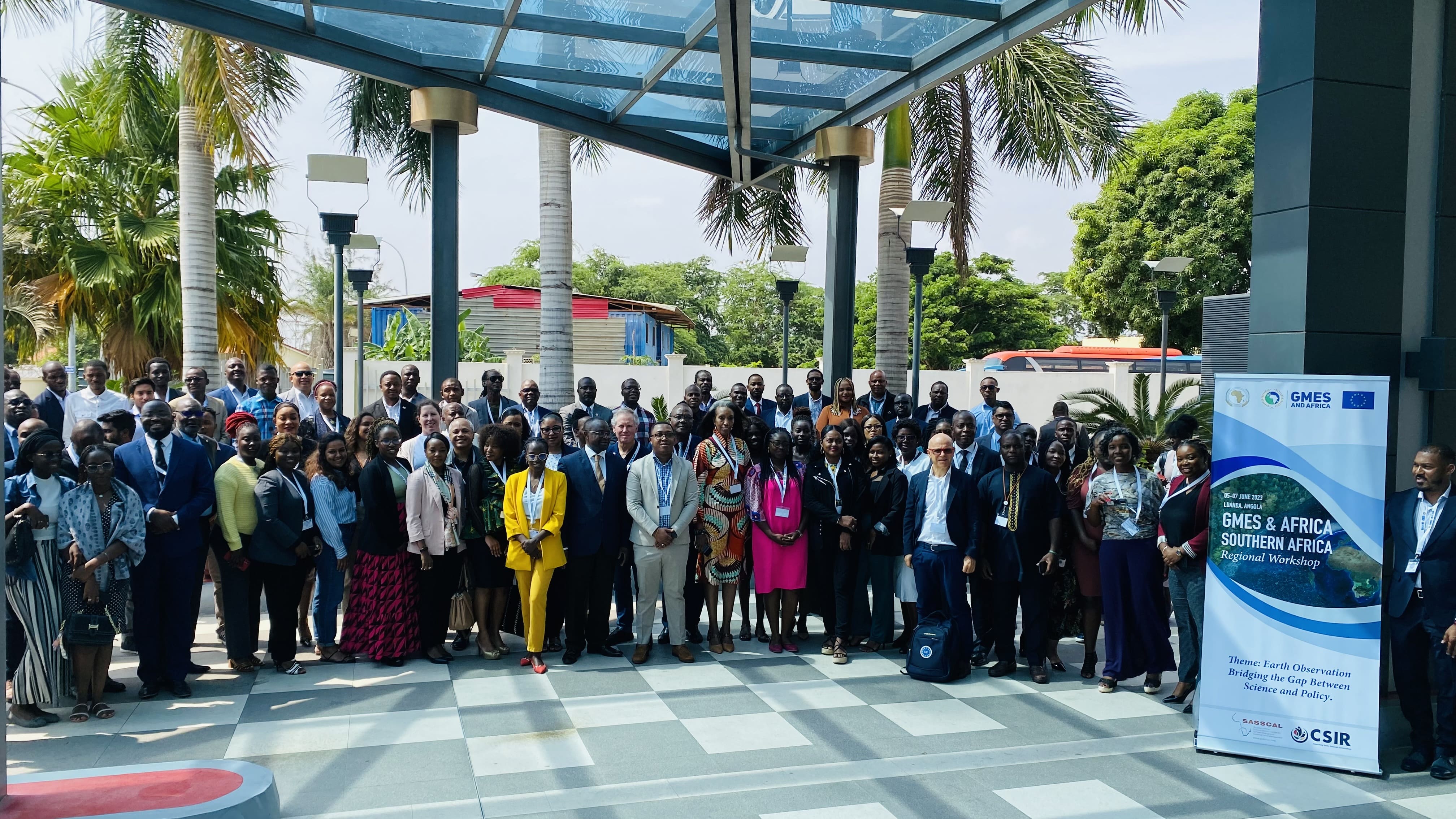
The Southern African Science Service Centre for Change and Adaptive Land Management (SASSCAL) and the Council for Scientific and Industrial Research (CSIR) co-hosted GMES and Africa Southern African Regional Workshop that was held from the 5th to the 7th of June 2023 in Luanda, Angola.
The Global Monitoring for Environment and Security and Africa (GMES & Africa) regional workshop assembled decision and policy makers as well as stakeholders in wetlands, environment, water resources management and marine resources to demonstrate new technologies in Earth Observation (EO) under the theme, “Earth Observation bridging the gap between science and policy”.
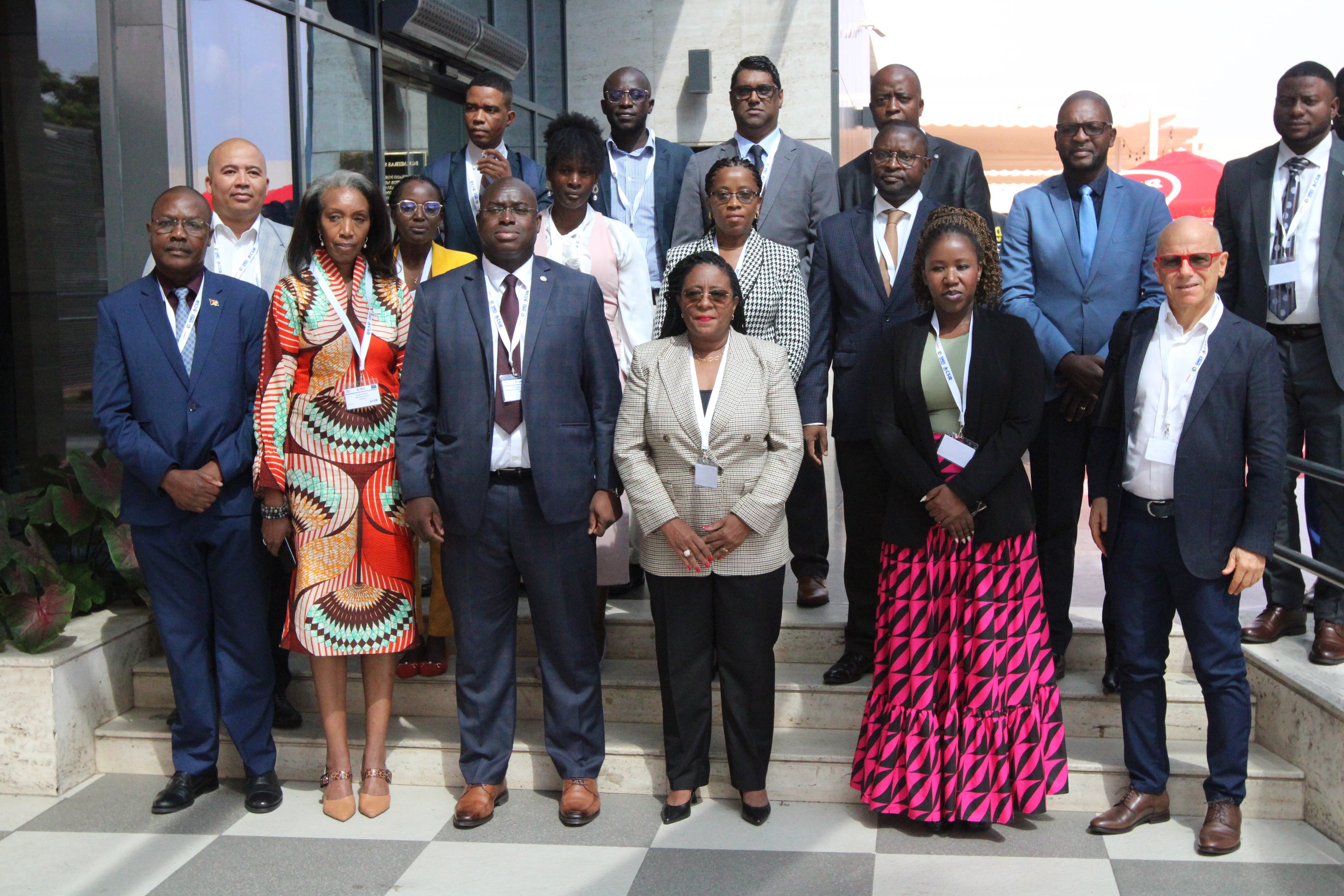
According to the United Nations Environment Programme publication for climate change in Southern Africa of 2013, it is reported that Africa, especially Southern Africa is continuously faced with climate change and variability, natural disasters, and environmental degradation which has a negative impact on agricultural production and economic productivity. Furthermore, the African Union Agenda 2063 —”The Africa We want” and the Africa Space Policy and Strategy highlight the importance of Satellite Earth Observation for natural resources management and social -economic development in Africa.
It is against this background that GMES & Africa programme funded by the African Union Commission and European Union prioritizes the development of African Space capabilities and coordination of space activities such as earth observation mission and infrastructure. This is in response to global needs to sustainably manage the environment, understand and mitigate the effects of climate change, and ensure civil security by providing information to policymakers, scientists, businesses and public on a real-time basis.
The GMES & Africa, which is an instrument of the African Agenda of 2063 and African Space Policy and Strategy, adopted a continent that is not only a consumer in the global space arena, but a key driver of efforts to harness space technologies and applications, including Earth Observation for sustainable development.
The GMES & Africa programme supports 8 consortia, all working to reinforce and further grow infrastructure for a more systematic exploitation of geospatial data (from space and in situ sources) of projects such as the Wetland Monitoring and Assessment Service for Transboundary Basins (WeMAST) implemented by SASSCAL and Africa Marine and Coastal Operations for Southern Africa (MarCOSIO) implemented by CSIR from Southern Africa.
The Wetlands Monitoring and Assessment Service for Transboundary Basins (WeMAST) project, was established to design and develop an integrated platform for wetland assessment and monitoring. WeMast focuses on supporting better management of selected transboundary river basins in Southern Africa namely the Cuvelai, Okavango, Limpopo and the Zambezi river basin. The WeMAST Geoportal and Mobile Application provides essential data on exposure, within wetlands that monitors land and vegetation cover, resilience that looks at vegetation above ground biomass, fractional cover and basin degradation, sensitivity that assesses water quality and soil moisture index and ancillary that monitors rainfall and drought vulnerability (temperature). The monitoring and assessment of wetlands allows for water resource management, biodiversity, land use planning for decision support.
The Executive Director of SASSCAL, Dr Jane Olwoch believes that embracing innovation in Earth Observation technologies and fostering collaborations between scientific advancement and policy makers is crucial in shaping sustainable policies for effective mitigation of the impact of climate change which will ensure a resilient future for generations to come.
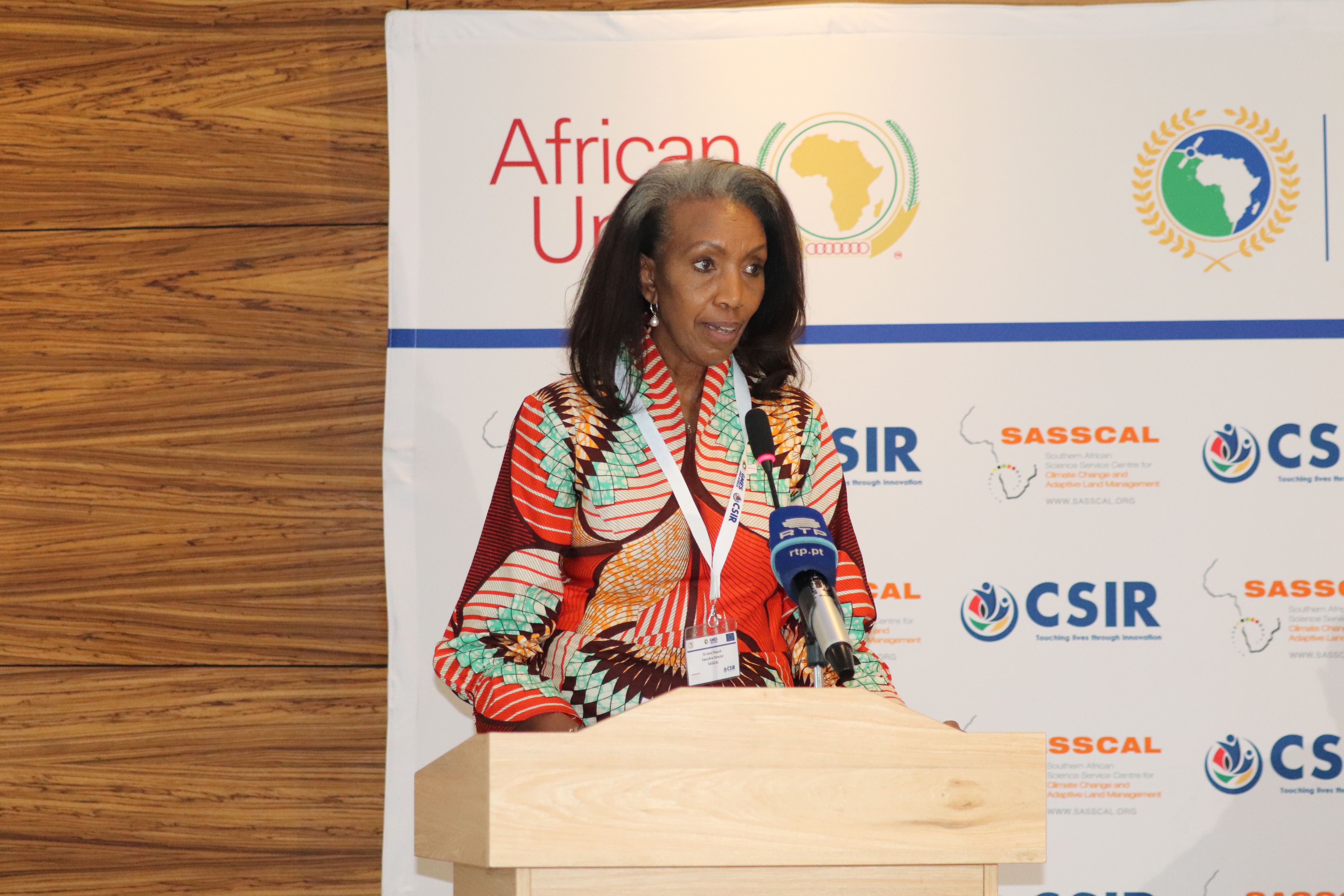
CSIR drives the Marine and Coastal Service Development for Southern Africa (MarCOSIO) project that contributed to the creation of Abalobi, a global social enterprise and its eponymous app focusing on supporting fisheries with tools to optimize fishing operations, improve safety at sea to better understand environmental variability, and monitor Illegal, Unreported, and Unregulated (IUU) fishing activities. With the utilization of Earth Observation, CSIR monitors and manages coastal and marine environment for coastal zone management, pollution monitoring, climate change and sea level rise, resource management and aids coastal zone planning and adaptation strategies and overall oceanography and marine ecosystems.
Overall, the utilization of Earth Observation data for sustainable development and climate resilience provides policy makers with accurate and timely information on climate change dynamics to monitor environmental changes, predict future scenarios and assess the effectiveness of climate change -related interventions. It allows early warning systems for climate related hazards such as floods, droughts, degradation, and desertification. This allows decision makers to anticipate and respond to such challenges proactively.
Hence, the GMES & Africa Southern African Regional Workshop was aimed at demonstrating new technologies such as the WeMAST Geoportal and Mobile Application and the Abalobi Fisher Mobile Application to ensure its effective use by policy makers and stakeholders in climate change mitigation.
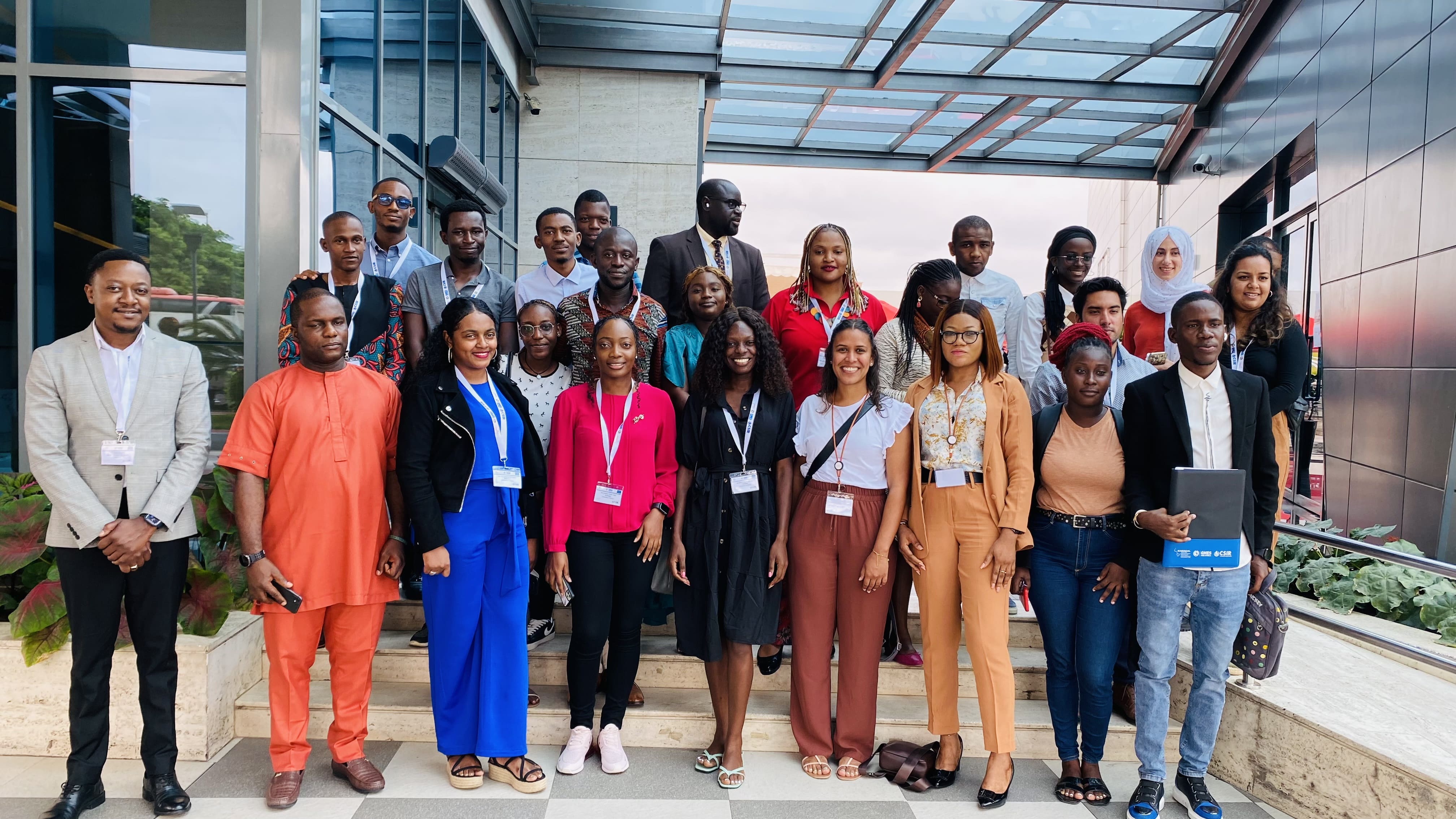
Through collaboration, capacity building and policy support, GMES & Africa, SASSCAL, CSIR and all stakeholders alike can enhance the capacities of African institutions, policy makers and communities to utilize EO data for sustainable development and climate resilience as well as contribute to the “Africa We Want”.
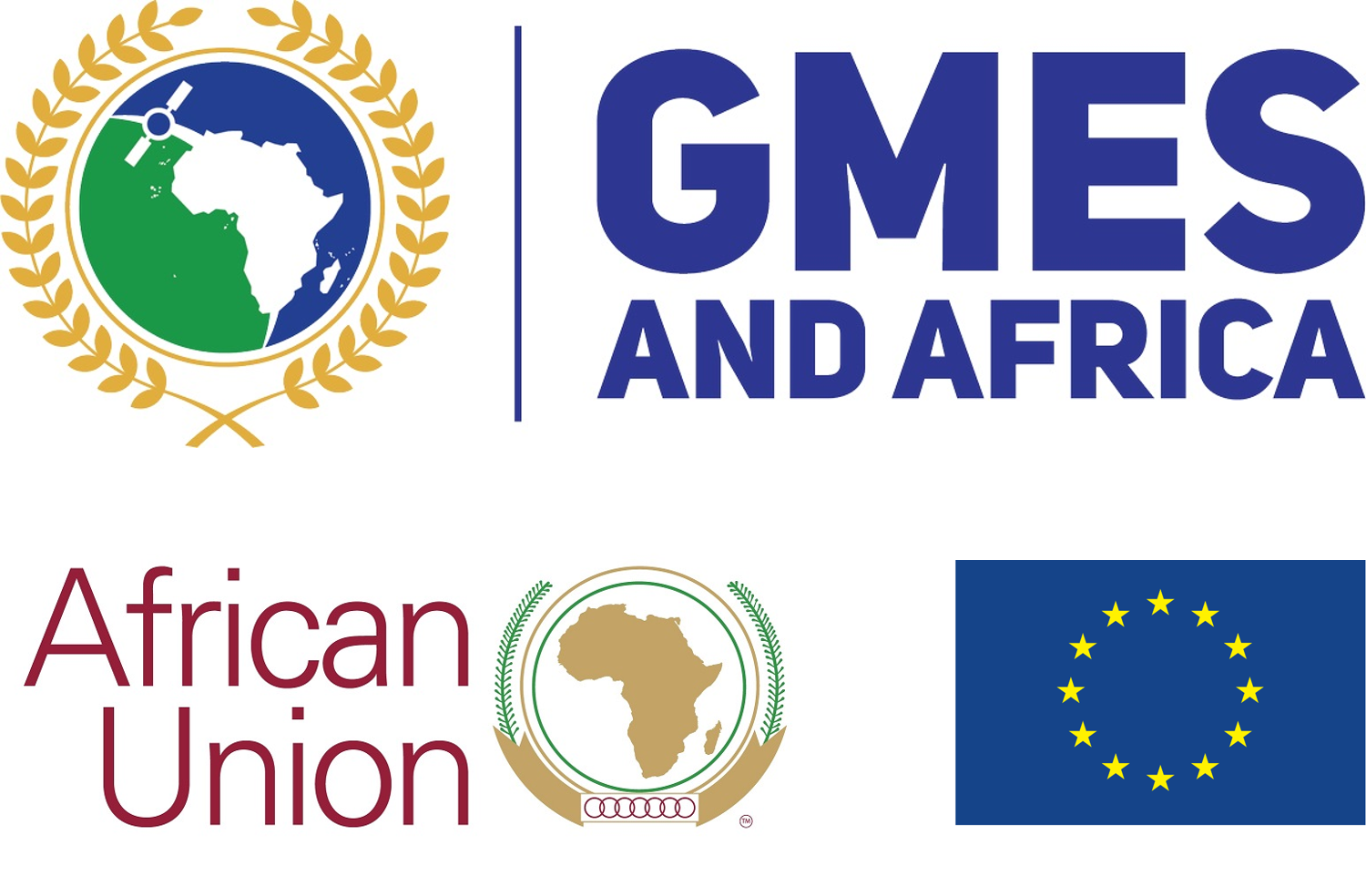


Leave a Reply